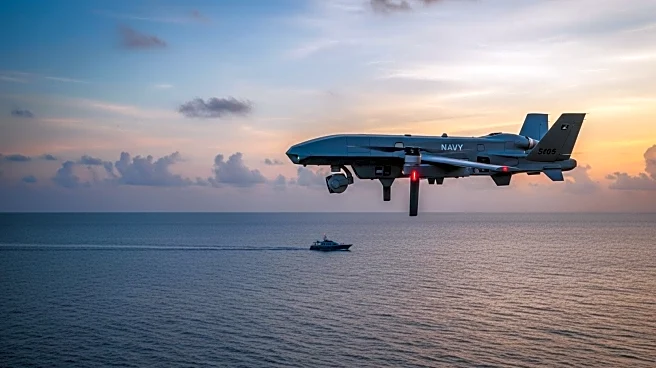What's Happening?
Lawmakers have raised concerns about the legality of the Trump administration's military strikes on alleged drug-trafficking boats in the Caribbean. During a Senate Armed Services Committee hearing, Democratic senators and an independent member questioned the actions, suggesting they may have violated the War Powers Resolution and the Law of Armed Conflict. The hearing was held to confirm Derrick Anderson as the assistant defense secretary for special operations/low-intensity conflict. Anderson, when asked about the legality of such strikes, stated he was not involved in previous decisions. Senators expressed alarm over the lack of congressional notification and the absence of an Authorization for Use of Military Force, which typically supports U.S. military actions against terrorist groups. Concerns were also raised about the potential legal liability for servicemembers involved in these operations.
Why It's Important?
The issue highlights significant legal and ethical questions regarding U.S. military operations and the use of force without explicit congressional approval. The potential for servicemembers to face legal repercussions if these actions are deemed unlawful underscores the need for clear legal frameworks and accountability. This situation could impact U.S. military policy and operations, particularly in regions where drug trafficking and terrorism intersect. The debate also reflects broader concerns about executive power and the need for transparency in military engagements, which could influence future legislative and policy decisions.
What's Next?
The Senate Armed Services Committee may continue to scrutinize the legal justifications for military actions in the Caribbean. There could be calls for more stringent oversight and possibly legislative action to clarify the legal parameters for such operations. The administration may need to provide further explanations or adjust its strategies to align with legal requirements and congressional expectations.









